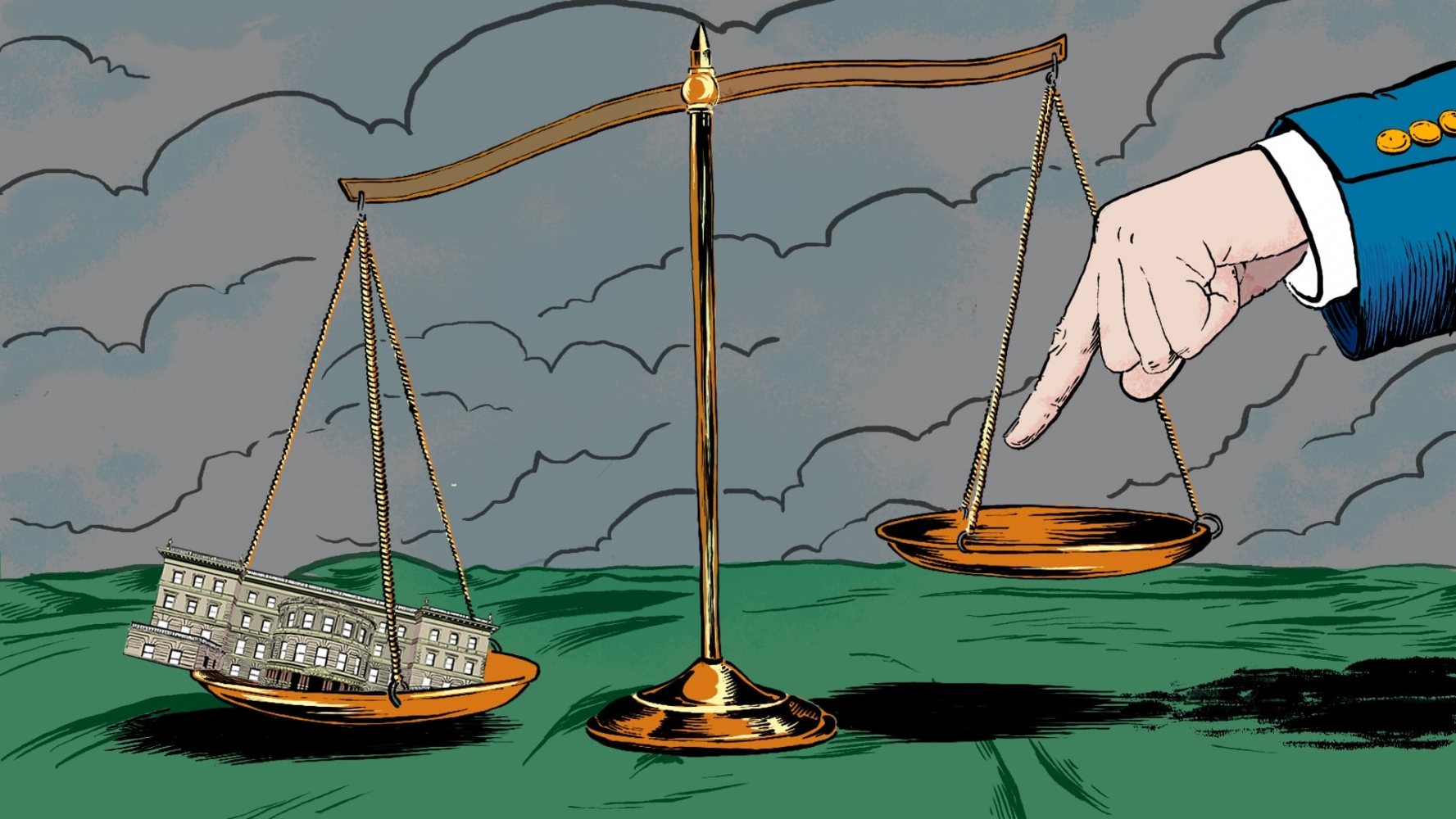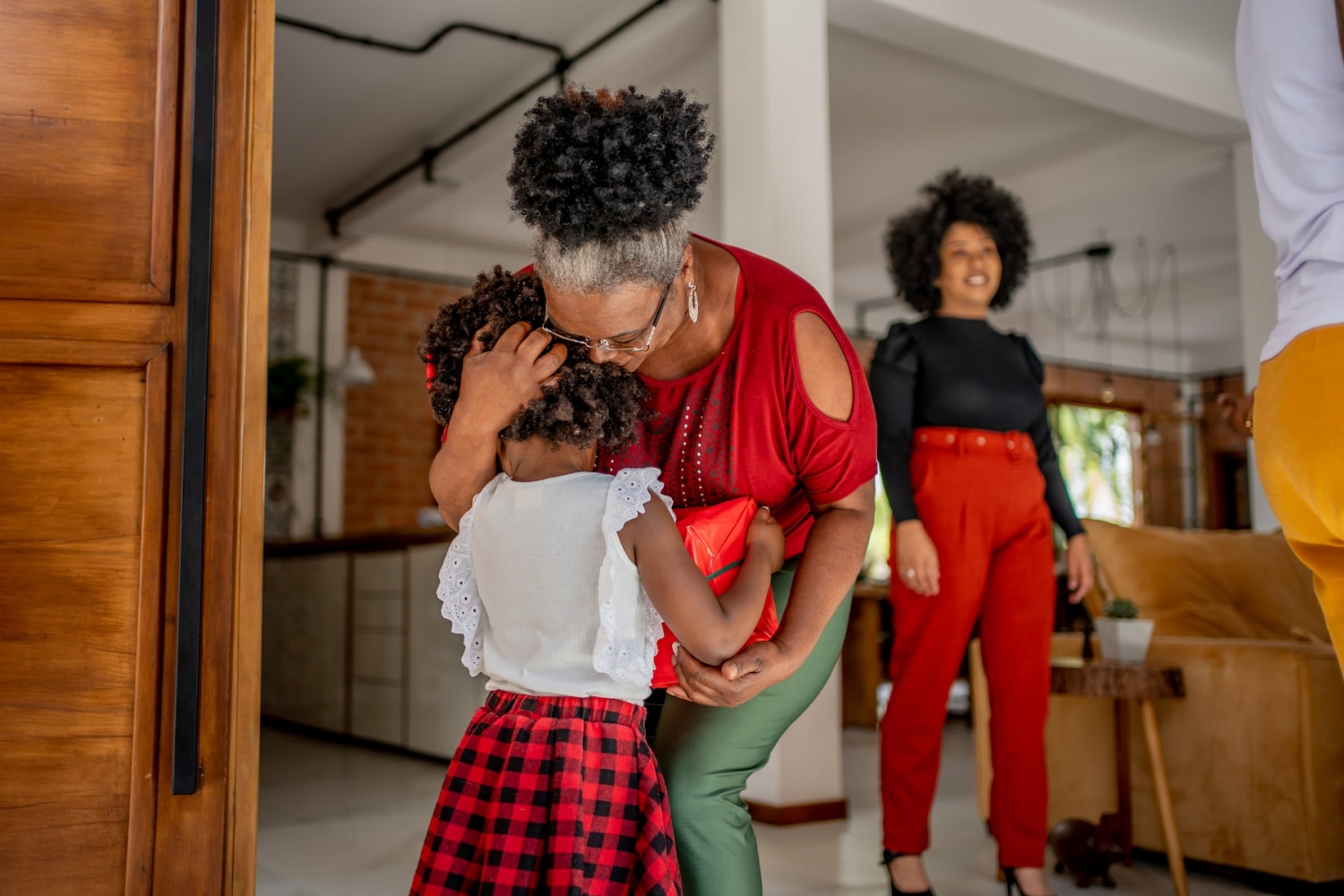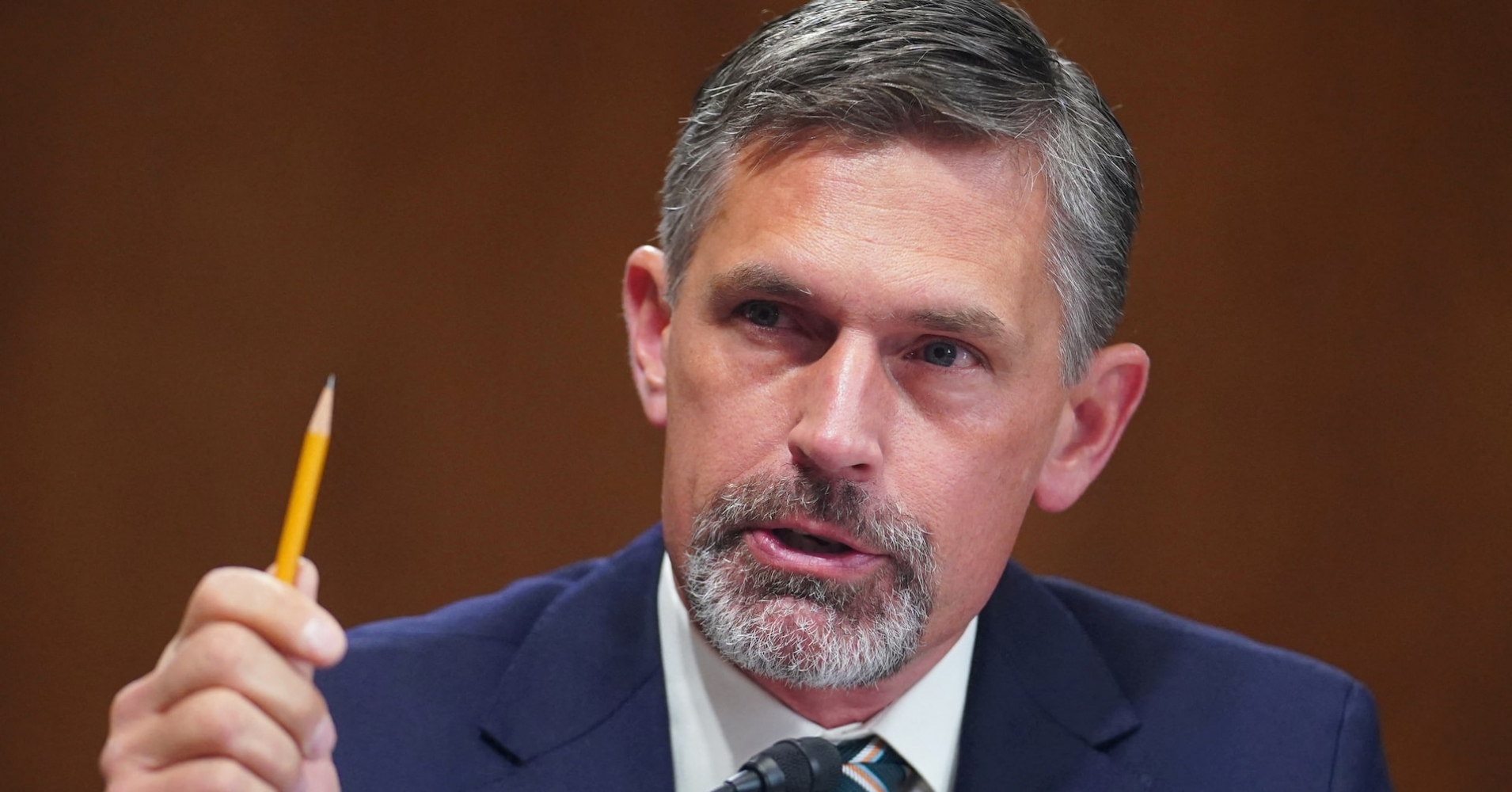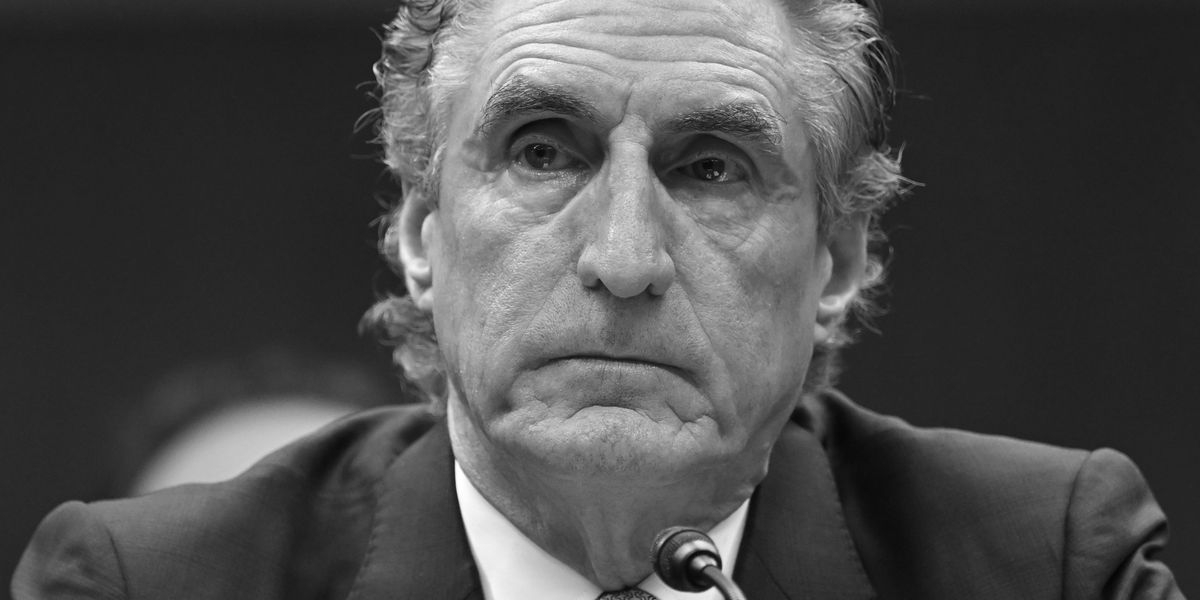

Published on: 07/29/2025
This news was posted by Oregon Today News
Description
July began with a sign of renewal a long time in the making in Downtown Portland.
Passersby watched as workers removed plywood from the long-boarded up windows of the Multnomah County Justice Center and construction teams blocked off Southwest Main St. to reinstall the Thompson Elk statue. Both the windows and statue had sustained damage during the 2020 racial justice protests.
Their damage had served as a visible reminder of the strife Portland felt under President Donald Trump’s first term in office, when political friction and clashes with federal officers heavily tarnished the city’s reputation nationally.
Just blocks away, city leaders met to discuss how to once again position themselves against White House policies under a second Trump term.
“I don’t think that there’s anything to be gained by appeasement against this administration,” said Councilor Steve Novick, speaking at a meeting about a petition to shut down the city’s Immigration and Customs Enforcement office. Days later, councilors considered whether to erase language about race and gender from city policy — or forgo hundreds of thousands of federal grant dollars.

Across the country, elected officials have faced arrest, funding cuts and other penalties for opposing Trump policies since his return to the White House. By contrast, Portland’s leaders are still weighing how best to respond: vocally fight back with lawsuits and protests, or try to stay off of Trump’s radar with a more quiet resistance.
Portlanders are waiting.
“I think folks are looking to their elected leaders for clear stances and clear guidance,” said Salomé Chimuku, chair of the Multnomah County Democrats. “They’re looking to people who understand this isn’t about them, or their political gains, more than it is about us.”
Setting the tone
Portland leaders didn’t hesitate to publicly oppose Trump’s first term.
Less than a month into office, then Mayor Ted Wheeler joined a crowd at the Portland International Airport to protest the White House’s 2017 travel ban, which primarily targeted Muslim-majority countries. By April, the city council had voted to sue the Trump administration for threatening to withhold federal grants from sanctuary cities like Portland. Wheeler regularly criticized the Trump administration on X, then known as Twitter, often tagging Trump’s account to ensure attention.

Attention from the federal administration came quickly.
In 2018, Trump and other Republican leaders lambasted Wheeler’s handling of Occupy ICE protests, after the mayor discouraged police from responding to federal workers’ calls to clear protests outside the city’s ICE office. In 2019, Trump shone another spotlight on Portland, siding with members of the Proud Boys as they descended on the city to clash with anti-fascist demonstrators. Then came 2020. Trump’s deployment of federal officers to Portland inflamed nightly racial justice protests, drawing national attention to violent clashes that painted the quiet liberal city as a chaotic war zone.
Later that summer, when a pro-Trump demonstrator was fatally shot during a downtown rally, Trump threatened to “clean up” the city if Wheeler didn’t. Wheeler held a press conference, where he blamed the president for creating “the hate and division” that sparked the shooting.
“Stay the hell out of the way,” Wheeler said.
City leaders have taken a much more reserved tack thus far in response to Trump’s second term.
The city began the year with a familiar response: Joining a lawsuit against the Trump administration’s threat to sanctuary cities. But instead of combative social media posts or protest appearances, Mayor Keith Wilson stuck to carefully-worded media statements.
“As a sanctuary city, we are focused on making Portland a safe, welcoming place for all community members,” Wilson said.

Behind closed doors, councilors have urged Wilson for direction on how the city will respond to the Trump administration’s increased attack on progressive issues. Wilson declined to comment for this story.
City leaders agree that the stakes feel higher under this second Trump term. Already, the White House has arrested elected officials for allegedly interfering with federal immigration work. And the Department of Justice has threatened to arrest public officials who accept federal funding on behalf of a city that has policies related to equity and diversity.
“It feels very different this time around,” said Councilor Eric Zimmerman. “I would say the idea that the federal government would threaten a local elected official who is following state and local law, just because the feds don’t agree with it — it’s a whole new ball game.”
It’s a moment that many on the City Council believe calls for a united response.
“I think our values are pretty clear in City Hall and Portlanders know that,” said Councilor Sameer Kanal. “It’s a question of getting to a place where we’re able to speak about those values in a unified way.”
Proceed with caution
While 2020 brought layers of challenges to Portland — from a global pandemic to hazardous wildfire smoke — the protests’ impact on the city’s image remain a popular theory for some to explain why Portland’s economy has struggled more than other cities coming out of the pandemic.
“We became a campaign ad for the MAGA movement, and we saw a lot of devastation to our commerce downtown,” said Councilor Dan Ryan, the only current city official who was in office in 2020. Ryan said he’s been heartened to see new businesses and events come to town in recent months, signs he believes show the city’s economy is rebounding. “And I would like to see that continue.”
Ryan is anxious about how protests and opposition to Trump this time around could derail that recovery process.

“I don’t know if we can survive anything like that again,” he said.
Leaders in the business community also are urging City Hall to use caution.
“I don’t know the right or wrong way to respond to Trump,” said Downtown Development Group co-president Greg Goodman, one of Portland’s largest private landowners. “But I hope whatever we do doesn’t further damage our reputation as a city. You can lose the battle and still win the war.”
Beyond the city’s reputation, there’s money at stake if Portland does take on the Trump administration. The city currently relies on nearly $400 million in federal grant dollars, which largely support housing and transportation projects. The Trump administration has threatened to withhold dollars if the city continues to support programs that prioritize people based on race or gender. There are several city programs that could meet this description, like rules around prioritizing contracts with minority-owned businesses or the Portland Clean Energy Fund, a voter-approved tax meant to support economic growth for marginalized communities impacted by climate change.
Attorney Jose Cienfuegos is president of the board of directors for the Revitalize Portland Coalition, a business advocacy group founded by Portland developer Jordan Schnitzer. He’s concerned about the effect funding cuts could have on the city’s tight budget.
“That’s money the city needs,” he said. “Are we going to dance with the devil, or are we going to pave our own direction and go without the money — which I don’t know we can do?”
He said the decision places the city — and his organization — in an ethical bind.
“Revitalize Portland Coalition is all about the financial well-being of our city,” he said, “but it’s not about conceding in morals to get there.”
Fight back
Other Portlanders don’t think the city has much of a choice.
Brian Dennings, a co-chair of the Portland chapter of the Democratic Socialists of America, said there’s no guarantee that the federal government will even hand over grant dollars if the city follows its rules.
“We know that that’s a zero-sum game,” he said. “Every time you capitulate to Trump, you just lose again because they’re just gonna come back around and use that as leverage. At what cost? Throwing people of color and immigrants under the bus?”

Chimuku, with the Multnomah County Democrats, agreed that there’s nothing the city can really do to stay off Trump’s radar.
“Even if we were to stay quiet, I don’t think it would change anything in terms of them coming after us,” she said. “We are a natural foil to his administration.”
All of Portland’s 12 new city councilors — and mayor — are registered Democrats. Chimuku said now is the time to demonstrate the group’s principles.
“Why do we have progressive leaders if they’re not gonna stand on progressive values and in a time of hardship?” Chimuku said. “Hardship is where we want our values the most to be represented, not the least.”
District 1 Councilor Mitch Green, one of the more progressive city councilors, said he’s already volunteered to be arrested to defend the city’s values, if necessary.
“I feel an obligation to this city to be someone who, when this moment comes, takes that risk instead of rolling over for an authoritarian,” he said.
After the November election, Green said he heard from many Portlanders who, while deflated by Trump’s win, were heartened by the outcomes of the City Hall elections. He believes that by vocally opposing Trump, city leaders can keep that optimism alive.
“I think people are looking for us to lead, not wait, not react, not hide, but lead,” he said.
Best practices
There’s no clear guidance for how progressive cities should navigate Trump policies.
Some cities, such as New York, have tried to take a more conciliatory tone, with Mayor Eric Adams directing city officials to refrain from publicly criticizing the administration — a move that appeared intended to help resolve federal corruption charges against Adams. But it didn’t stop the Trump administration from filing a lawsuit against Adams and the city for its laws preventing local law enforcement from cooperating with federal immigration officials.
By contrast, Los Angeles officials have launched a more oppositional response to bombastic immigration arrests and protest response there. Mayor Karen Bass has confronted federal officers in public, comparing their actions to terrorism. And California Sen. Alex Padilla was forced to the ground and handcuffed by federal agents when he tried to question Homeland Security Secretary Kristi Noem.
Portland, meanwhile, has held comparatively small protests outside of the ICE building on the city’s south waterfront, but it has still attracted the White House’s attention.

On July 8, White House “border czar” Tom Homan threatened to come to Portland in an attempt to “double down” on anti-immigration protests. Days later, the Department of Homeland Security shared images from Portland ICE protests, suggesting the building was “under siege.”
Sandy Chung, executive director of the ACLU of Oregon, said city leaders should look beyond the U.S. for guidance. That means studying authoritarian regimes, where “divide and conquer politics” are the norm. To strategically respond, Chung said, politicians need to agree on basic values.
“Then they’ll have a North Star to return to when we’re making decisions about tactics,” she said. “That focus should be on defending our most vulnerable communities.”
It’s easy for leaders and activists to be reactive and lead with emotion when their values feel threatened, Chung said. Having a basic agreement on strategy will keep the city from devolving into the kind of “political theatre” that played out in 2020.
Councilor Zimmerman agrees. He said he believes that conservative media outlets “want nothing more” to put a target on Portland and gain national attention.
“I don’t think that kind of attention is healthy for any Portlanders right now,” he said. “We need to be incredibly deliberate. We need time to weigh the consequences of our actions as elected officials. It’s healthy that we’re talking about it now. None of this can happen on the fly.”

City leaders may need to decide a path soon.
Activists have already called on Portland to revoke a permit that allows ICE to use its South Macadam Avenue building for detention purposes. Some immigrant advocates have said that’s shortsighted and would only make it harder for Portlanders attempting to gain citizenship because the next closest ICE office is an hour’s drive away.
Protesters’ calls for revoking the permit disrupted a recent council session, forcing Council President Elana Pirtle-Guiney to pause the meeting. During that break, councilors Angelita Morillo and Kanal met with protesters in City Hall’s public atrium.
“In the past, we would have shut those people out of the meeting for being disruptive,” said Morillo, who immigrated with her mother from Paraguay when she was 4. “But if we do that, we will lose their trust forever. We need to show that we understand their concerns. To listen, not finger wag.”
Morillo and Kanal listened to activists’ concerns and explained the options the city could take to remand ICE’s work in Portland — and the risks attached. They pledged to be transparent with whatever step they take next.
“I think that’s what we need from our elected leaders,” Chung said of the councilors’ actions. “Honest communication.”
The need for those discussions is only growing. Last week, Trump signed an executive order that aims to force more people living outside into treatment facilities and reward cities that enforce public camping bans.
As the White House continues to pen orders that could undermine Portland policies, Chung advised elected officials that they need to agree on a unified strategy sooner than later.
“Because this fight,” she said, “it’s a long fight.”
News Source : https://www.opb.org/article/2025/07/29/portland-oregon-politics-donald-trump-ice-immigration-multnomah-justice-center/
Other Related News
08/02/2025
Dear Eric When my wife and I updated our wills she designated a diamond tennis bracelet an...
08/02/2025
DEAR ABBY I made a terrible mistake moving 2000 miles across the country to be closer to m...
08/02/2025
Four Democratic US senators on Friday slammed last months directive by Interior Secretary ...
08/02/2025
The department creates a seemingly impossible new permitting criteria for renewable energy
08/02/2025












